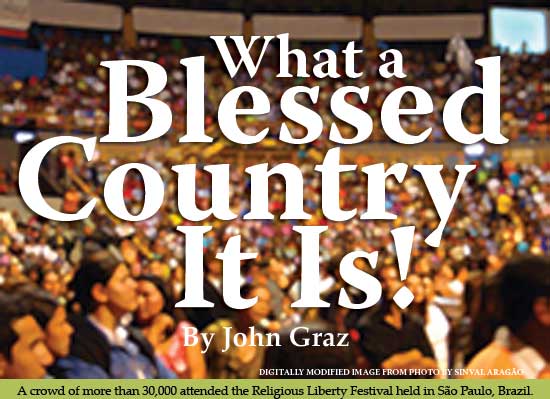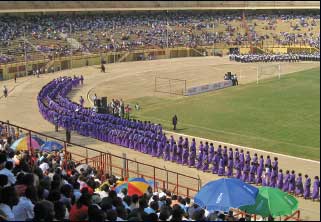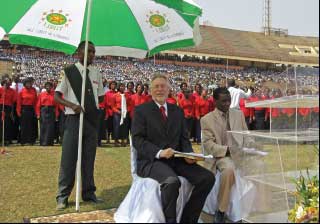What a Blessed Country It Is!
John Graz November/December 2008
Getting your Trinity Audio player ready...

A group of officials from a country in Central Asia were visiting the International Religious Liberty Association at the world headquarters of the Seventh-day Adventist Church. We did our best to make their visit interesting and invited them to a dinner in their honor. They asked us to explain the relations between the government and religious minorities in the United States. We talked about religious freedom and church-state separation. Sitting by me, a member of the delegation was listening very carefully. Then he said in a soft voice so only I could hear, "What a blessed country it is!"
Just a few words, but I will never forget them: "What a blessed country it is!" What a blessed country it is when religious minorities have the same rights and protections as the majority. What a blessed country it is when you are not discriminated against because you don't believe like others. In such a blessed country, we are used to complaining openly about minor restrictions or possible projects that could potentially create a problem in the years to come. We are quick to imagine the worst and speculate about the inevitable discriminations that may be secretly planned. But what about the gift we have had for more than two centuries in this country: religious freedom!
Time to Say Thank You
We received our norms of religious freedom as a gift from courageous people who sometimes did not share our beliefs, but wanted all humans to be free
- To choose their religion;
- To have or not have a religion;
- To change their relig ion if they wanted to;
- To teach their religion to their children; and
- To share their beliefs.
This dream came about because of their understanding of human dignity. Few of us living in North America have been openly and legally persecuted or discriminated against. Why? Because religious freedom was already a fact a long time before we were born. What a blessed country it is where we have inherited religious freedom.
I think the time has come to say publicly: Thank you for religious freedom! Not a little or a timid or a confidential thank-you, but a massive thank-you!

|
| A march-past of women and youth associations a the Luanda, Angola, Festival of Religious Freedom, June 28, 2008 |
Thank you first to God, who gave us the freedom to choose. Thank you to those who gave their energy and sometimes their lives for it. Thank you to those countries that cherish freedom—particularly the United States, which protected freedom through its legislation and its Constitution.
We need to look to holding Festivals of Religious Freedom. We, here in places of religious freedom, need to proclaim what we believe in and want to protect and promote.
Celebration of a Freedom

|
| Dr. John Graz prepares to address the crowd of 40,000 at the Luanda festival. |
The programs typically started on Saturday morning in a religious context, with testimonies, prayers, and a sermon. The afternoon was devoted to a more specific celebration, where experts and preachers led in a program featuring musicians, poets, actors, and others. These three-hour programs attracted more people than there were seats. A 2006 program in Bucharest attracted some 4,000 people to an outstanding program. It was a great beginning to a dream!
Why Wait?
In February 2006 I was in S
Article Author: John Graz
John Graz is secretary-general of the International Religious Liberty Association.